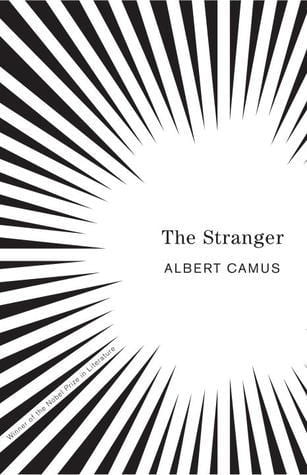Imagine it’s 1942. You’re French. Einstein has already refuted the absolutist notions of time and space, Darwin’s findings have nearly dismantled creationism, and Freud has speculated that there’s a subconscious realm where much of the mind’s processes are at work. Nietzsche fathomed nihilism, addressing the question: what would happen to a post-religious society? Worse yet, the Nazis have risen; you’ve been warring with Germany for three years.
Albert Camus published his debut novel, The Stranger, in this context. The soccer-loving philosopher writes an apathetic, emotionless protagonist who searches for meaning in a meaningless world. Camus prescribes a set of absurdist strategies for dealing with love, grief, and violence. In short, he suggests one ought to refrain from investing in such matters.
Though Camus personally rejected the term ‘existentialist,’ he is often grouped with his existentialist contemporaries. Like them, Camus rejected the notion of a universal purpose. No overarching truth or religion suits existentialists, nor do they accept the notion of a comprehensive moral code befitting to all. Fundamentally, they believe human flourishing is a myth; life is nothing more than a waiting room, and the room is full of hardship, loss, and setbacks. Ironically, from this rejection of Meaning arises a new purpose. The existentialists’ simple commandment is to treat life as something to conquer. Do not get bogged down with other people or expectations or feelings or morality. Existentialists urge: do what you want to do, precisely when you want to do it.
All of these philosophies are instantiated in Meursault—a man who traipses around avoiding his feelings to a nearly sociopathic degree. He makes sense of his world by suspending his passions. In the opening pages, for example, when the reader discovers that Meursault’s mother has died, the protagonist treats the event as a mild annoyance. One might expect that this degree of flippancy could only arise from someone who despises his parentage. Yet Meursault does not seem angry. Rather, he appears dispassionate, reacting as if his own mother were not the one dead.
Following his mother’s death, Meursault lays in bed, sleeps, smokes cigarettes, and drinks coffee. None of these are done under the pretense of sadness or grief. These are the activities that Meursault most wants to do. He does not consider the possibility that he must cope or grow.
Throughout the novel, the reader bears witness to similar reactions. As he commits violence and rejects notions of love, the reader tries to make sense of Meursult’s uncanny indifference. His ability to remain perpetually unfazed pairs with his knack for processing experiences without reflecting upon them. The story, mediated through his first-person perspective, relies on simple language, and an easy-to-follow plot. In this disinterested fashion, Meursult drifts from banal activity to banal activity. He does not seem to distinguish much between the people with whom he surrounds himself. He finds companionship wherever he is, and he provides camaraderie to those he befriends, but these relationships are merely instrumental. Meursault appears devoid of the passion required to experience meaningful connections.
Though Camus’s novel is not a gripping adventure tale, the book provides its reader with an interesting set of intellectual exercise. Since Meursault’s activities are scarcely human, one cannot help but ask, “What would I do in this situation?” Even if one accepts existentialism as her guiding ethos, would her manner of conquering the absurd be similar to this novel’s protagonist? Is the ideal life one where we avoid grief through stoic detachment, or are the passions a natural part of human flourishing? The existentialists mandate their followers to live exactly as they want. Through engagement with The Stranger, the reader will confront exactly what this means to herself.
You can check out The Stranger from the JKM Library by putting one of our multiple copies on hold via our catalog here, or by coming into the library and finding it on the shelf on the 3rd floor. Ask a librarian for help!
RK Taylor is a loyal library employee, ILL’s biggest fan, and a Chatham graduate student of creative writing. In his spare time, he enjoys baking, using his whiteboard to work through existential angst, and checking out as many CDs as the library will permit. He teaches creative writing at the Allegheny County Jail through Chatham’s Words Without Walls program.


